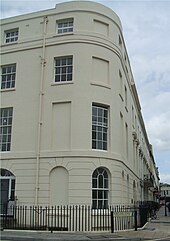United Kingdom
HMRC, the UK tax collection agency, estimated that the overall cost of tax avoidance in the UK in 2014-15 was £2.2 billion, of which £1.3 billion was loss of income tax, National Insurance contributions and Capital Gains Tax. The rest came from loss of Corporation Tax, VAT and other direct taxes.[22] This compares to the wider tax gap (the difference between the amount of tax that should, in theory, be collected by HMRC, against what is actually collected) in that year of £36 billion.[22]In 2008 it was reported by Private Eye that Tesco utilized offshore holding companies in Luxembourg and partnership agreements to reduce corporation tax liability by up to £50 million a year.[23] Another scheme previously identified by Private Eye involved depositing £1 billion in a Swiss partnership, and then loaning out that money to overseas Tesco stores, so that profit can be transferred indirectly through interest payments. This scheme is reported to remain in operation and is estimated to be costing the UK exchequer up to £20 million a year in corporation tax.[23][24]
In 2011, ActionAid reported that 25% of the FTSE 100 companies avoided taxation by locating their subsidiaries in tax havens. This increased to 98% when using the stricter US Congress definition of tax haven and bank secrecy jurisdictions.[25] In 2016, it was reported in the Private Eye current affairs magazine that four out of the FTSE top 10 companies paid no corporation tax at all.[26]
Tax avoidance by corporations came to national attention in 2012, when MPs singled out Google, Amazon.com and Starbucks for criticism.[27] Following accusations that the three companies were diverting hundreds of millions of pounds in UK profits to secretive tax havens, there was widespread outrage across the UK, followed by boycotts of products by Google, Amazon.com and Starbucks.[28][29] Following the boycotts and damage to brand image, Starbucks promised to move its tax base from the Netherlands to London and to pay HMRC £20million.,[30] but executives from Amazon.com and Google defended their tax avoidance as being within the law.
Google has remained the subject of criticism in the UK regarding their use of the 'Double Irish', Dutch Sandwich and Bermuda Black Hole tax avoidance schemes.[31] Similarly, Amazon remains the subject of criticism across the UK and EU for its tax avoidance, with a 'sweetheart deal' between Luxembourg and Amazon.com enabling the American company to pay little to no corporate tax across Europe declared illegal in 2015.[32] PayPal, EBay, Microsoft, Twitter and Facebook have also been found to be using the Double Irish and Dutch Sandwich schemes. Up to 1,000 individuals in the same year were also discovered to be using K2 to avoid tax.[33]
Other UK active corporations mentioned in relation to tax avoidance in 2015, particularly the Double Irish, Dutch Sandwich and Bermuda Black Hole:
- Technology: Apple, Microsoft, PayPal, EBay, Intel, Yahoo!, Facebook, Uber, Netflix, Hewlett-Packard, IBM and Twitter[34]
- Retail: Boots (who moved their registered office to a Swiss letterbox),[35] Kellogg's,[36] and TopShop[37]
- Football clubs: Manchester United, Birmingham City, Coventry City and Cheltenham Town.[38]
- News: Daily Mail[39]
Tax avoidance has not always related to corporation tax. A number of companies including Tesco, Sainsburys, WH Smith, Boots and Marks and Spencer used a scheme to avoid VAT by forcing customers paying by card to unknowingly pay a 2.5% 'card transaction fee', though the total charged to the customer remained the same. Such schemes came to light after HMRC litigated against Debenhams over the scheme during 2005.[40]
General anti-avoidance rule
Since the late 1990s, New Labour consulted on a "general anti-avoidance rule" (GAAR) for taxation, before deciding against the idea. By 2003, public interest in a GAAR surged as evidence of the scale of tax avoidance used by individuals in the financial and other sectors became apparent, though in its 2004 Budget the Labour Government announced a new "disclosure regime" as an alternative, whereby tax avoidance schemes would be required to be disclosed to the revenue departments.[41]In December 2010, the new Coalition government commissioned a report which would consider whether there should be a general anti-avoidance rule for the UK, which recommended that the UK should introduce such a rule, which was introduced in 2013. The rule prevents the reduction of tax by legal arrangements, where those arrangements are put in place purely to reduce tax, and would not otherwise be regarded as a reasonable course of action.[6]
Following the Panama Papers leak, Private Eye, The Guardian and other British media outlets noted that Edward Troup, who became executive chair of HM Revenue and Customs, worked with Simmons & Simmons in 2004 representing corporate tax havens and opposed the GAAR in 1998.[42][43][44]
Historical tax avoidance
Avoiding the window tax in England
Other historic examples of tax avoidance were the deliberate destructions of roofs after World War II in order to avoid substantial property taxes. The owners of buildings, like Fetteresso Castle (now restored) and Slains Castle in Scotland, deliberately destroyed their roofs in protest at the new taxes.

No comments:
Post a Comment